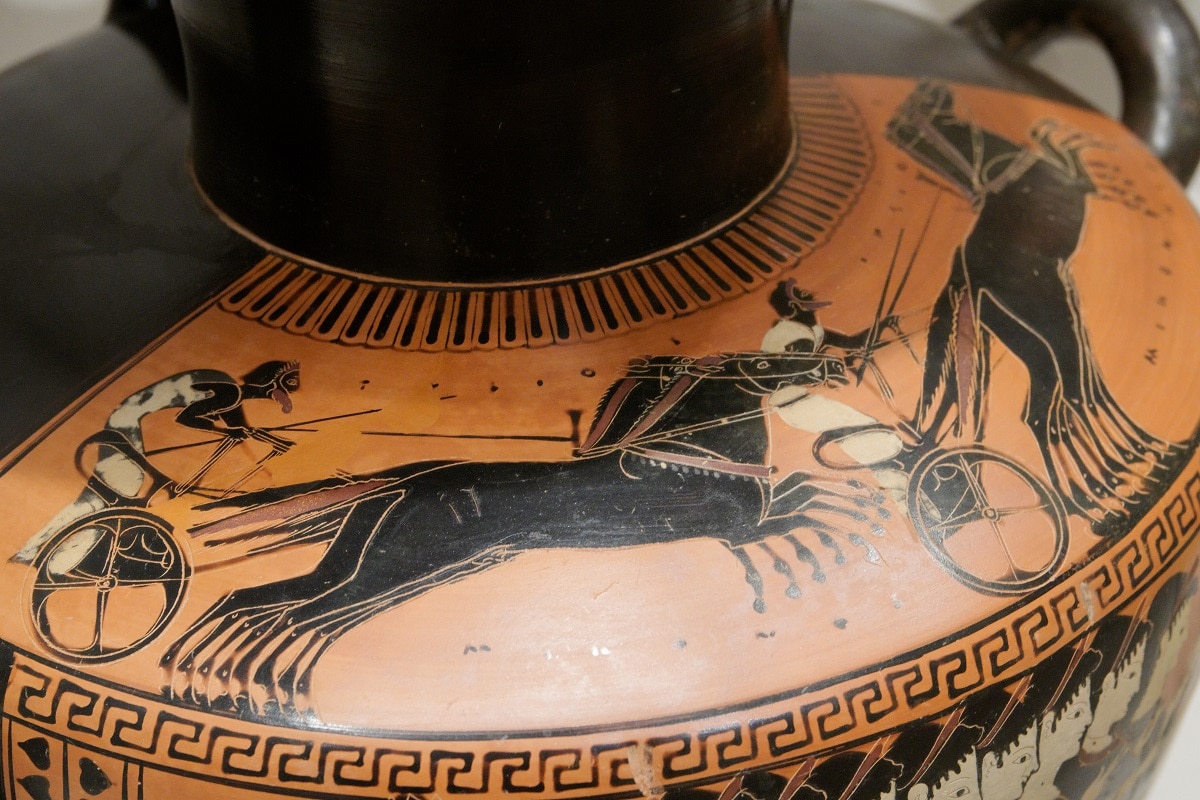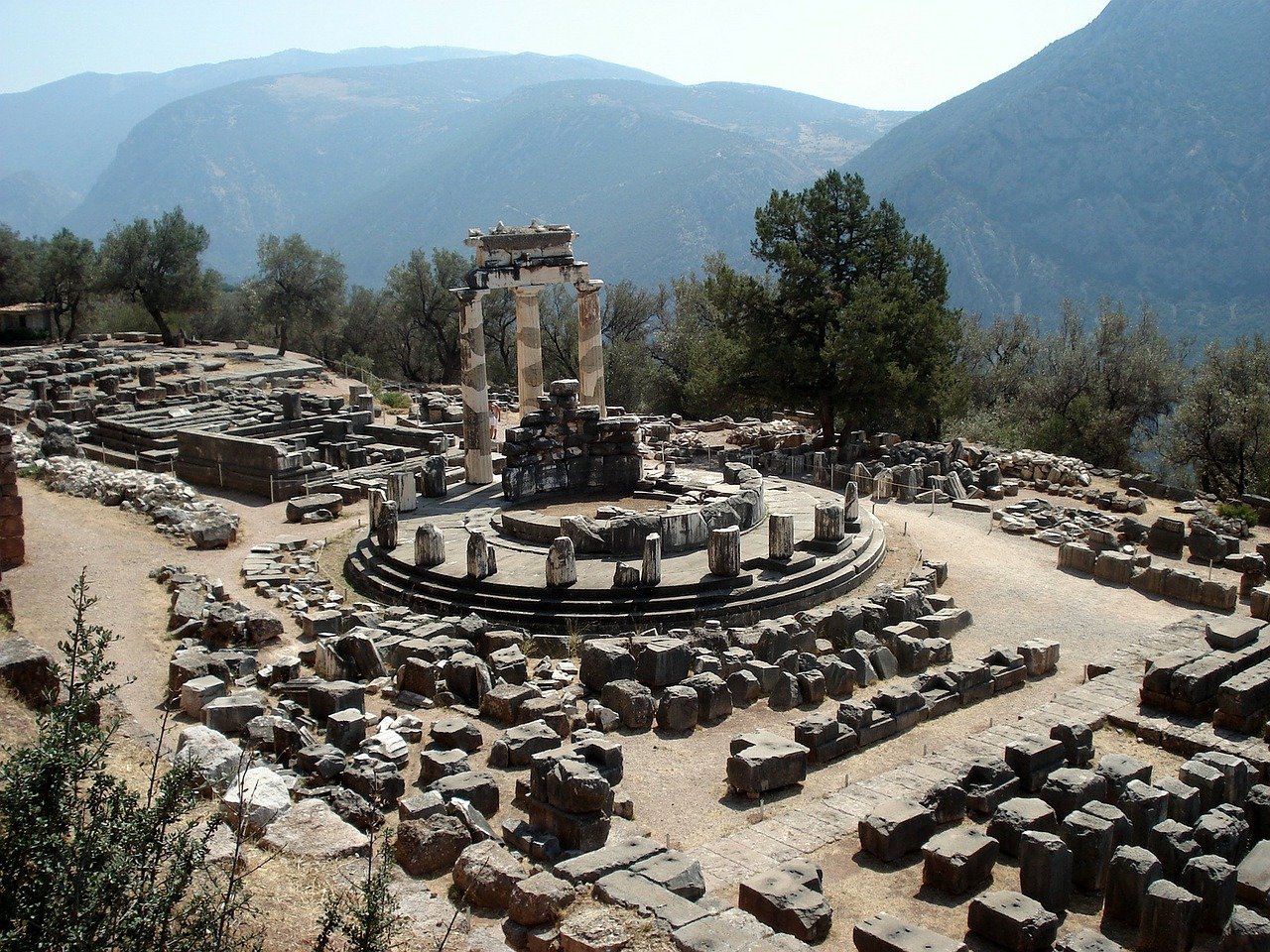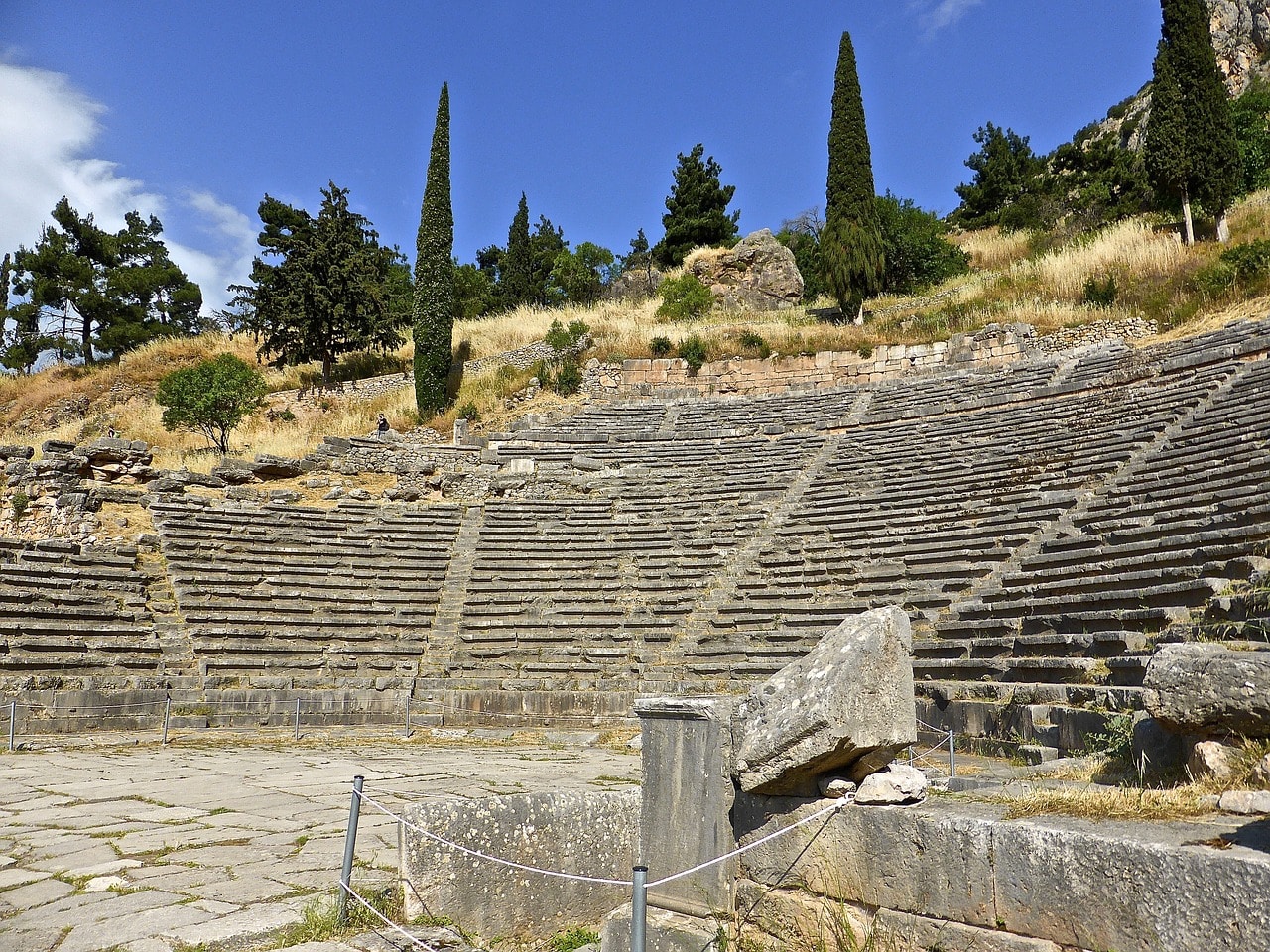
Four were the greats Panhellenic Games of Antiquity: the famous Olympic Games, those of Nemea in Argos, the Isthmian in Corinth and the Pythian Games that took place in the Sanctuary of Apollo at Delphi. We will discuss the latter in our post today.
The town of Delphi is located in the Greek region of the Phocis, about 150 kilometers west of Athens. Almost three thousand years ago, where there was only a lonely and wild place, a sanctuary was built there in honor of the god Apollo that also housed one of the best known oracles of ancient Greece.
A group of priestesses called pythias They were in charge of maintaining the oracle and of revealing to visitors the designs of the gods (the word "fortune teller" derives from them). Pythias were named in memory of the monster Piton, a giant serpent that inhabited the place that the god would have killed.
The popularity of this oracle reached its peak from the XNUMXth century BC Travelers from all over Hellas flocked there to offer their votive offerings to Apollo and listen to divine revelations. As a result of this continuous flow of visitors, temples, monuments and many other structures were erected.

Ruins of the Temple of Apollo at Delphi
In addition, in Delphi there was a symbolic place known as Omphalos, The center of the world" which Zeus had pointed out with a large conical stone.
Celebration of the Pythian Games
In 590 BC the Pythic Games were held for the first time, which would have a eight-year periodicity (Unlike the Olympics, which were held every four). Those in charge of organizing them were priests called amphibians, from different Greek cities.
Legend has it that the games were instituted by Apollo himself just after he had killed Python. The myth relates how the god took possession of Delphi with a laurel wreath on his head. For this reason, the winners of the Pythic Games were rewarded with a laurel wreath, a lake that was later imitated in other celebrations and ceremonial competitions.
The sacred truce
As was the case with the Olympic Games, during the months prior to the start of the Pythic Games several heralds called theories they toured Greece to announce the date of its beginning.
The objective of these messengers is that this call will reach everywhere. The city that agreed to participate in the games should immediately cease any war activity and submit to the call "Sacred truce." Cities that refused to do so were excluded, which was a significant loss of prestige.
Ceremonies
The early days of the Pythian Games were destined for the sacred ceremonies in honor of Apollo. There were big sacrifices (hecatombs), processions y Banquet.

Delphi Theater
There was also a theatrical performance in which the epic fight of the god against the terrible Python snake was remembered. To host this show the famous Delphi Theater, One greek theaters better preserved.
Poetic and musical contests
After the opening ceremonies, the Pythian Games began with a series of musical contests in which the participants demonstrated their skill playing instruments such as the zither. With the tempo, theater, choir and dance competitions were added. In the late period there were also poetry contests.
Sports competitions
After the days dedicated to the arts, sports competitions began. The most prominent evidence was the stadium race (about 178 meters), of double stage, long race of 24 stadiums and the arms race, in which the runners competed armed with the hoplitic panoply; competitions were also held long jump, discus and javelin throw, as well as various wrestling tests such as that of the pancreatic. There were three categories according to the age of the competitors.
The last days of the Pythian Games were reserved for equestrian competitions. There were two categories: chariot races with two horses (beams) and four horses (chariots). These competitions were held in ehe racecourse in the neighboring town of Cirra, a few kilometers away from Delphi. However, in the sanctuary the famous statue of the Charioteer of Delphi, today conserved in the archaeological museum of the city. This bronze sculpture represented Gela Police, a tyrant of Greek Sicily who proclaimed himself the winner of the games on numerous occasions.
End of the Pythian Games
The popularity of the Pythian Games continued even after the Roman conquest of Greece, although they began a slow period of decline. The oracle continued to receive visitors and the games continued to be held, but its popularity and prestige gradually diminished.
The riches deposited in the temples at Delphi were looted in the XNUMXrd century AD by the Goths and Heruli. Finally, the games stopped being celebrated in the following century.